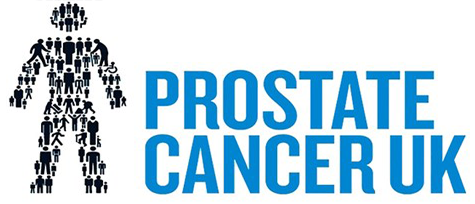Peter’s Story – Robotic Radical Prostectomy
Peter wrote his original story in 2008 following his radical surgery for prostate cancer. He has now amended this to cover his experience upto October 2017.
I could never have imagined that a family holiday in the Alps which included racing grandkids down rocky tracks on a dirt bike could result in a dexterous digit into a very delicate area of my undercarriage.
Arriving back in the UK I had found blood in my urine and a high fever so a visit to A&E was inevitable and to my shock I was admitted and catheterised to relieve an obstructed bladder.
Very fortunately for me this led to a raft of tests starting with a simple blood sample to check for a substance called Prostate Specific Antigen (PSA). Sadly this test is notoriously unreliable, giving both false positives and also false negatives. At the moment, however, it the best there is and together with other tests can, and does, indicate whether problems exist.
My test result was 8 ng/ml against a normal range of about 4 for a 65 year old man and 5 for a 70 year old. My Urologist advised me carefully that this was NOT definitely a cancer and could be due to the bike ride or inflammation or even recent sex !
He advised both a cystoscopy (passing a thin viewing tube called a cystoscope along the urethra (the tube that carries pee out of the body) and into the bladder), and a prostate biopsy where small pieces of tissue are extracted through the rectal wall by needles under "Ultra Sound Guidance".
Sounds painful but the anxiety is worse than the reality. A prostate biopsy is not without major side effects which can include sepsis. After a long wait for results, my wife and I attended the urologist who, to our huge surprise, informed me that I had prostate cancer and named it an Adenocarcinoma. The shock of hearing those words are branded in my psyche forever.
As a strapping, fit farmer it never really occurred to me that this was possible.
The next words I will never forget "In view of your age and other medical conditions", you may find "Watchful Waiting" to be the best form of action to take".
I was incredulous that he should consider leaving this tumour inside my body for even a further day, but his list of treatment options left my wife and me speechless.
First the patient has to consider:
- where the cancer is
- how far it has grown or spread (the stage)
- the type of prostate cancer
- how abnormal the cells look under a microscope (the grade)
- general health and level of fitness.
Next, to consider, are the treatment options, which include watchful waiting to see what happens. New research shows that for many this is the best option, if one can bear the thought of cancer still living within your body !
The main treatments are:
- surgery
- external radiotherapy
- internal radiotherapy (brachytherapy)
- hormone therapy
- high frequency ultrasound therapy (HIFU) (as part of a clinical trial)
- cryotherapy (as part of a clinical trial)
- chemotherapy
- symptom control treatment.
Peter wrote his original story in 2008 following his radical surgery for prostate cancer. He has now amended this to cover his experience upto October 2017.
I could never have imagined that a family holiday in the Alps which included racing grandkids down rocky tracks on a dirt bike could result in a dexterous digit into a very delicate area of my undercarriage.
Arriving back in the UK I had found blood in my urine and a high fever so a visit to A&E was inevitable and to my shock I was admitted and catheterised to relieve an obstructed bladder.
Very fortunately for me this led to a raft of tests starting with a simple blood sample to check for a substance called Prostate Specific Antigen (PSA). Sadly this test is notoriously unreliable, giving both false positives and also false negatives. At the moment, however, it the best there is and together with other tests can, and does, indicate whether problems exist.
My test result was 8 ng/ml against a normal range of about 4 for a 65 year old man and 5 for a 70 year old. My Urologist advised me carefully that this was NOT definitely a cancer and could be due to the bike ride or inflammation or even recent sex !
He advised both a cystoscopy (passing a thin viewing tube called a cystoscope along the urethra (the tube that carries pee out of the body) and into the bladder), and a prostate biopsy where small pieces of tissue are extracted through the rectal wall by needles under "Ultra Sound Guidance".
Sounds painful but the anxiety is worse than the reality. A prostate biopsy is not without major side effects which can include sepsis. After a long wait for results, my wife and I attended the urologist who, to our huge surprise, informed me that I had prostate cancer and named it an Adenocarcinoma. The shock of hearing those words are branded in my psyche forever.
As a strapping, fit farmer it never really occurred to me that this was possible.
The next words I will never forget "In view of your age and other medical conditions", you may find "Watchful Waiting" to be the best form of action to take".
I was incredulous that he should consider leaving this tumour inside my body for even a further day, but his list of treatment options left my wife and me speechless.
First the patient has to consider:
- where the cancer is
- how far it has grown or spread (the stage)
- the type of prostate cancer
- how abnormal the cells look under a microscope (the grade)
- general health and level of fitness.
Next, to consider, are the treatment options, which include watchful waiting to see what happens. New research shows that for many this is the best option, if one can bear the thought of cancer still living within your body !
The main treatments are:
- surgery
- external radiotherapy
- internal radiotherapy (brachytherapy)
- hormone therapy
- high frequency ultrasound therapy (HIFU) (as part of a clinical trial)
- cryotherapy (as part of a clinical trial)
- chemotherapy
- symptom control treatment.
My path results showed a Gleason 3+3 and T1c staging and after great thought, and research on the internet, which has to be used with great discretion, using peer reviewed papers from the Prostate Cancer UK (PCUK) and Cancer Research UK web-sites, I opted for Robotic Assisted Surgery which, nine years ago, was only available in a few centres like The Royal Marsden Hospital, London.
The Da Vinci Robot in the hands of a skilled surgeon can reach places inside the human body through tiny incisions. The surgeon sits in the corner of the operating theatre in front of a TV screen viewing deep inside a complex area of male anatomy. According to Da Vinci men can run a marathon just a few weeks after surgery, personally I found this fanciful, unless you’re Mo Farah!
I returned home after two days, catheterised and leaking badly. The first week was the most miserable of my life. Fortunately things improved ten days later when the wretched catheter was removed. Incontinence, however, replaced anxiety about cancer which I was assured had gone for good.
Over the next three years I followed instructions about pelvic floor exercises whilst the incontinence slowly got worse, but manageable with the use of pads.
I began to notice a swelling in my belly button, which one of the instruments had pierced, and my GP referred me to another surgeon who confirmed a Portal Hernia and a rather large patch was stapled into my abdomen. This caused considerable pain, for a long period, when doing any lifting. The surgeon commented that he had found and repaired a number of adhesion's from the prostatectomy operation which could have caused a major bowel obstruction if left
The Da Vinci Robot in the hands of a skilled surgeon can reach places inside the human body through tiny incisions. The surgeon sits in the corner of the operating theatre in front of a TV screen viewing deep inside a complex area of male anatomy. According to Da Vinci men can run a marathon just a few weeks after surgery, personally I found this fanciful, unless you’re Mo Farah!
I returned home after two days, catheterised and leaking badly. The first week was the most miserable of my life. Fortunately things improved ten days later when the wretched catheter was removed. Incontinence, however, replaced anxiety about cancer which I was assured had gone for good.
Over the next three years I followed instructions about pelvic floor exercises whilst the incontinence slowly got worse, but manageable with the use of pads.
I began to notice a swelling in my belly button, which one of the instruments had pierced, and my GP referred me to another surgeon who confirmed a Portal Hernia and a rather large patch was stapled into my abdomen. This caused considerable pain, for a long period, when doing any lifting. The surgeon commented that he had found and repaired a number of adhesion's from the prostatectomy operation which could have caused a major bowel obstruction if left
Nine years after surgery to remove my prostate, and with it my cancer, I am thankfully free of the disease. The trade-off is, however, severe as I remained badly incontinent and have sexual dysfunction. I have often wondered whether it is better to have no sex drive, as happens to men who opt for hormone treatment or be left with all your sex desires yet no ability to fulfil them.
A new and promising treatment for male incontinence is the "Advance XP Male Sling" which is being trialled across the NHS. After months of agonising my urologist, Mr James Moore of the Sussex Bladder Clinic, Eastbourne, cautiously confirmed that it might reduce my leakage but that there were inevitable risks.
I recently underwent surgery with one overnight stay but awoke to find that I was for the first time in 9 years COMPLETELY DRY. The only slight downside was that I could not pee at all and so once again had to resort to the dreaded catheter for a week, a complication Mr Moore said happened in 10% of patients.
My joy a week later to have the catheter removed and finally being able to urinate, albeit very slowly, was only surpassed by quickly finding that, at least for the time being, I am completely continent and pain free.
This continues to be a journey and, like all cancer stories, is full of Highs and Lows and watching so many men die of prostate cancer during this time has left our family intensely grateful that science has kept so many of us still going.
I have been privileged to serve on a number of research bodies, as a lay expert, to evaluate new procedures and seen the role out of Robotic Assisted Surgery across the country.
I chair a local Prostate Cancer Support Group and have recently helped, at an event, to test PSA levels for over 300 men who may not be able to find GP's willing to support testing even though all men over 50 are entitled to free testing, after counselling about the fallibility of the results.
Far too many men do not realise that they have prostate cancer until it is incurable, whilst many are over treated for a cancer which may well do them no damage until the Grim Reaper finally finds them.
Over 11,000 men in the UK still die every year a very cruel death, and some groups like West Indian men are a much greater risk as are male children of prostate cancer sufferers. The statistics are very similar for breast cancer in women, and the genetic risks are similar.
Whilst it is important to know that many men will die of old age never knowing that they have prostate cancer, far too many will have missed an opportunity for experts to say whether their cancer is a a TIGER or a PUSSYCAT, and treat accordingly. Tigers are aggressive killers!
Peter Barton
See Peter's editorial on the 'Male Sling' Here
A new and promising treatment for male incontinence is the "Advance XP Male Sling" which is being trialled across the NHS. After months of agonising my urologist, Mr James Moore of the Sussex Bladder Clinic, Eastbourne, cautiously confirmed that it might reduce my leakage but that there were inevitable risks.
I recently underwent surgery with one overnight stay but awoke to find that I was for the first time in 9 years COMPLETELY DRY. The only slight downside was that I could not pee at all and so once again had to resort to the dreaded catheter for a week, a complication Mr Moore said happened in 10% of patients.
My joy a week later to have the catheter removed and finally being able to urinate, albeit very slowly, was only surpassed by quickly finding that, at least for the time being, I am completely continent and pain free.
This continues to be a journey and, like all cancer stories, is full of Highs and Lows and watching so many men die of prostate cancer during this time has left our family intensely grateful that science has kept so many of us still going.
I have been privileged to serve on a number of research bodies, as a lay expert, to evaluate new procedures and seen the role out of Robotic Assisted Surgery across the country.
I chair a local Prostate Cancer Support Group and have recently helped, at an event, to test PSA levels for over 300 men who may not be able to find GP's willing to support testing even though all men over 50 are entitled to free testing, after counselling about the fallibility of the results.
Far too many men do not realise that they have prostate cancer until it is incurable, whilst many are over treated for a cancer which may well do them no damage until the Grim Reaper finally finds them.
Over 11,000 men in the UK still die every year a very cruel death, and some groups like West Indian men are a much greater risk as are male children of prostate cancer sufferers. The statistics are very similar for breast cancer in women, and the genetic risks are similar.
Whilst it is important to know that many men will die of old age never knowing that they have prostate cancer, far too many will have missed an opportunity for experts to say whether their cancer is a a TIGER or a PUSSYCAT, and treat accordingly. Tigers are aggressive killers!
Peter Barton
See Peter's editorial on the 'Male Sling' Here




midsussexprostate.uk - info@midsussexprostate.uk




